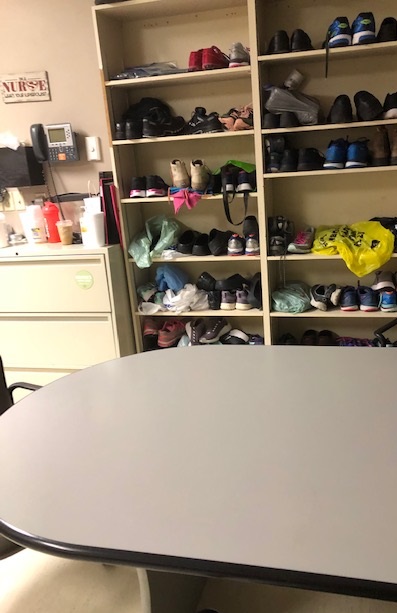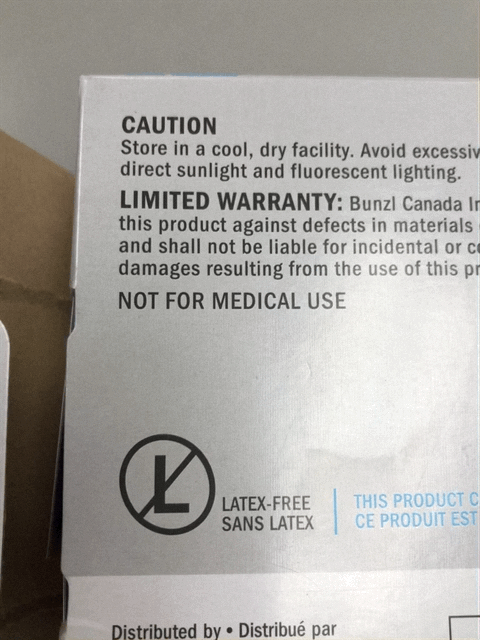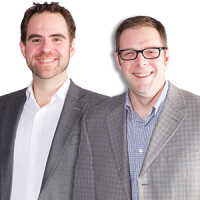A nurse says London Health Sciences Centre staff have been “shortchanged” by an administration that failed to properly prepare for the second wave of the novel coronavirus pandemic and attempted to shift blame to front-line workers following cases among employees.

The nurse, who Global News has agreed not to identify, says “it’s almost impossible to social distance” in the break area used by staff in the emergency department at Victoria Hospital.
“There’s probably on a regular day, at least 70 to 100 staff in the emergency department, including clerks, PSWs, emergency department technicians, doctors, residents, students. And all of us have to share one small little staff room that they’re only allowing six people in,” they said.
“In the break room, one of the entire walls is filled with work shoes that staff leave so they don’t transmit anything at home. And we’re expected to sit a foot away from the shoes that are probably contaminated with a ton of fluids.”

LHSC has recently provided additional break spaces, with LHSC chief medical officer Dr. Adam Dukelow explaining that six additional larger break spaces have been made available at University Hospital and another eight at Victoria Hospital.
While the nurse told Global News that LHSC has been good about making sure that staff actually take their breaks, they said that the new spaces at Victoria Hospital are “way across the other side of the hospital” which not only takes time away from breaks itself but also requires staff to travel through more of the hospital.
“I have not been to the new break areas, it’s way too far,” they told Global News in an email on Monday.
“Morale is horrible.”
Dukelow acknowledged on Wednesday that some travel would be required, but said it’s mostly through corridors and employees should be in personal protective equipment (PPE) when moving through the building. As well, he says new break areas should be within a “reasonable proximity to each work area.”
“We’ve used basically every available space — auditoriums, conference rooms, areas where teaching or meetings would have happened previously — in order to ensure we have absolutely as much space as possible,” he said.
In a statement emailed to Global News on Dec. 1, the Ontario Nurses’ Association said that nurses are “concerned about break spaces” and that ONA “continues to push the employer to do a better job of cleaning in these areas.”
Global News also reached out to Unifor Local 27’s workplace representative for comment but had yet to receive a response by publication time.

Another major issue raised by the nurse, and echoed by the ONA, was inadequate PPE.
“The new gloves that came out are stamped right on it ‘not for medical use,'” the nurse told Global News in late November, adding that sometimes when putting on the gloves they would rip at the wrist.
“The new masks that they brought in, people are having major allergic reactions and fungal infections from them. There’s a limited amount of them. And if you do have an allergy and you go to occupational health and safety, it takes quite a while to get you back into work.
“And people are missing work and not getting paid because they’re having reactions to the masks.”

Dukelow disputed those claims, telling Global News that LHSC has a “healthy supply of PPE” and that it is providing “appropriate PPE that’s of medical grade.”

Get weekly health news
He noted that there can be reactions to PPE but said LHSC is providing options.
“There is a number of issues that can come up with PPE. There are allergies, there’s reactions, there’s even a term that’s been coined of ‘mascne’ or mask acne that’s been circling around on social media. And everyone’s seen the pictures of people wearing PPE for long periods of time and getting reactions to that. There’s also ergonomic concerns,” he noted.
“We have the standard PPE that everyone picks up as they walk into the building. They change out of the mask they wore into the building, they change into a new mask as they go into work.
“But on each unit, there are additional types of masks for people to wear or other PPE if they’ve had any issues with sort of the standard-issue PPE that we have the most supply of. So area leaders ensure that every provider has access to PPE that they can work with.”

Dukelow added that he can’t “speak to specifics around an individual’s reaction” but said they’d have to work with their occupational health or primary care provider to determine how long they’d have to be off work, if that’s required.
“And every employee gets their sick time in accordance with the conditions of their collective agreement. And then we have non-union employees that are compensated in keeping with non-union sick benefits. So we have to abide by the preexisting agreements that are in place.”
In the Dec. 1 statement, the ONA also said its members are concerned about “accessing adequate supplies of N95s and other appropriate alternative levels of PPE.”
ONA said it is “advocating for LHSC to promote” the Ministry of Health’s COVID-19 Directive 5, particularly in regards to required precautions and procedures related to point of care risk assessments (PCRA). The directive says a PCRA “must be performed by every regulated health professional before every patient or resident interaction in a public hospital or long-term care home.”
If, after a PCRA, the health professional determines an N95 may be required, then “the public hospital or long-term care home must provide that regulated health professional and other health care workers present for that patient or resident interaction with a fit-tested N95 respirator or approved equivalent or better protection.”
“Nurses are exhausted, fearful and stressed.”
“Directions are changing regularly and it can be difficult to stay abreast of constantly changing information,” the ONA statement read.
“We know our nurses are asking the employer for support for their mental health with what they are being faced with daily, and the employer is working to get them the support they need. ONA will continue to work closely with the employer and our other health-care unions to support our health-care workers.”

The nurse who spoke with Global News also alleged that they learned that a coworker had tested positive, and when another coworker told Occupational Health and Safety that they worked with the coworker “they told her that she could be disciplined because she shouldn’t have been that close to him.”
“I would want to squash that rumour as soon as possible,” Dukelow said when asked about concerns that staff could face repercussions for reporting close contact with a COVID-19-positive staff member.
“We absolutely want people to be honest and not to be in fear. We’re working through this virus together to keep our staff, patients, and community safe. So when someone comes forward to tell the truth about an unintentional close contact or incident and they’re remorseful, there would absolutely be no discipline,” he explained.
“We would only ever consider disciplining if there’s blatant disregard of safety protocols or intentionally not wearing PPE with continued dishonesty.”
Additionally, the nurse raised concerns that some staff may not disclose that they have a cough or a fever because they could end up off work without pay.
“WSIB (Workplace Safety and Insurance Board) won’t cover it. Your sick time, they said ‘if you get COVID, we can’t prove it was transmitted from the hospital’ so we won’t get paid if we’re off.”
When asked whether part-time staff would receive pay if off work due to COVID-19, Dukelow would only say that there are union and non-union part-time employees and that “within each of those benefits and agreements it varies, as you can imagine we have a number of different unions in our organization.”
The nurse also argued that administration should have better prepared for the second wave of the virus.
“When the first (wave) comes, you get slapped in the face. But when you know the second one’s coming and you just leave everything status quo and then blame the staff for the transmission? No, it doesn’t give me a lot of faith in the leadership.”
Dukelow told Global News that he’d be “more than happy to speak to any staff or team member about what was done and hear their concerns and explore them and act on them as needed.”
“But I can assure all of our staff members and our community that administration, leadership at all levels of the organization, worked diligently during the first wave, between the first and the second wave we’re in now, to secure those healthy levels of PPE and identify some of the break spaces that I was mentioning earlier to ensure that staff had places for ever-important rest and relaxation during a shift and to eat and drink in a safe manner.”

The relationship between staff and administration at LHSC has appeared increasingly frayed since the onset of the second wave of the pandemic.
In mid-November, LHSC CEO Dr. Paul Woods admonished staff in an internal memo, citing ongoing issues with staff taking off masks to eat together and failing to practice proper physical distancing.
The following week, six unions representing LHSC workers said Woods’ comments made their membership feel “shamed, blamed, and humiliated, while they are working in the most unfavourable and challenging conditions they have faced in their careers,” according to a report in the London Free Press.
The nurse Global News spoke with stressed the lack of space to accommodate staff. “Now, people like Mr. Woods, he’s got his own office so he doesn’t have to worry about that kind of thing.”
LHSC has faced increased scrutiny amid massive COVID-19 outbreaks at University Hospital that, as of Dec. 9, have resulted in 139 cases among staff and patients as well as 14 deaths.
The recent numbers also include cases tied to an outbreak declared at UH on Dec. 5 that LHSC has said is not connected to the other outbreaks at UH which began Nov. 10 in 4IP General Medicine and spread to five other units.
On Dec. 2, Dukelow told Global News that when it came to additional measures “put in place in the past four or five days, the wish is that we would’ve been able to do that earlier.”
“But at the same time, we responded in that way as soon as the signal suggested that we needed to,” he explained at the time.
Middlesex-London Health Unit medical officer of health Dr. Chris Mackie said at the time that the health unit had provided advice and recommendations to LHSC well before additional restrictions were publicly announced.
“I can tell you that we have been giving LHSC advice on this Nov. 22, Nov. 26 — we’ve given lots of documented advice so it’s not as if nothing was happening in that meantime,” Mackie said on Dec. 2.
On Dec. 4, LHSC officials held a news briefing to provide a more thorough timeline of its response to the UH outbreaks, which outlined the internal measures LHSC implemented before announcing additional restrictions and measures on Nov. 27.
–With files from Global News’ Jake Jeffrey and Matthew Trevithick













Comments